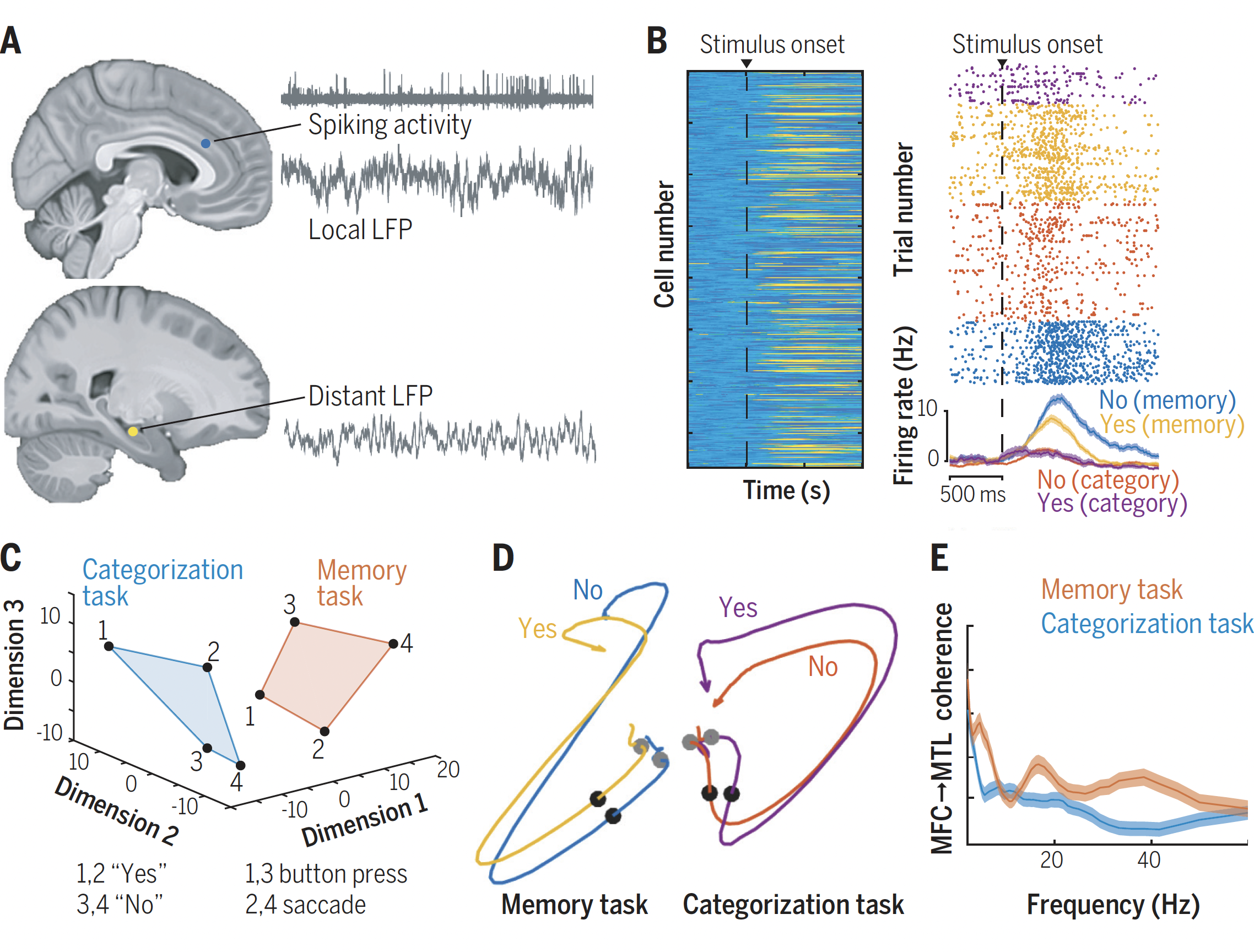Context-dependent representation of choice in the human brain
Using simultaneous recordings of neural activity from four areas in the human brain, we show that medial frontal cortex (MFC) selectively engages memory retrieval by representing memory-based choices only when the task requires the subject to remember. We show that interactions between MFC and the medial temporal lobe (MTL), as measured through phase-locking of MFC acivity to MTL oscillations, is upregulated during the memory task, allowing the subject to retrieve the relevant memories.
Summary
Decision-making in complex environments relies on flexibly using prior experience. This process depends on the medial frontal cortex (MFC) and the medial temporal lobe, but it remains unknown how these structures implement selective memory retrieval. We recorded single neurons in the MFC, amygdala, and hippocampus while human subjects switched between making recognition memory–based and categorization-based decisions. The MFC rapidly implemented changing task demands by using different subspaces of neural activity and by representing the currently relevant task goal. Choices requiring memory retrieval selectively engaged phase-locking of MFC neurons to amygdala and hippocampus field potentials, thereby enabling the routing of memories. These findings reveal a mechanism for flexibly and selectively engaging memory retrieval and show that memory-based choices are preferentially represented in the frontal cortex when required.
